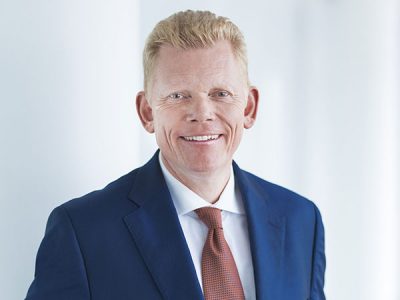Archived: Economic and monetary policy create confidence
Brazil’s economy is recovering – despite the uncertain political environment. Consumption, in particular, is powering the upswing.
It’s amazing what a good finance and business team can accomplish even if the government itself is very unpopular. This is precisely what Brazil is currently undergoing. In the polls, President Temer’s government is in a catastrophic state; only 3 percent of Brazilians still have a positive opinion of the government. Ninety-two percent of the population don’t trust the president. The government’s image is terrible after only eighteen months in office as it is endlessly involved in corruption scandals: several cabinet members and the President himself are being inves- tigated on suspicion of corruption. It is immunity alone that protects these politi- cians from prosecution
and conviction.
Atthe same time, the mood in the Brazilian economy is evidently brightening. Consumption, in particular, is picking up again after three years of recession. Car sales have been growing for four months. Sales in this key industry have increased by 8 percent over 2016. Confidence in the retail sector grew in September. For the first time in twenty-five months, both private and corporate customers are again requesting more credit. Sales in the food and beverages, pharmaceuticals and health care sectors are growing substantially.
Foreign companies are investing in Brazil, too: eighty-two billion dollars for purchases and mergers were transferred to Brazil in the twelve months ending with August. In late September, foreign companies paid four billion euros at auctions for oil and gas concessions and hydroelectric power plants.
Forecasts also indicate increasing confi- dence: the economy will grow by just under 1 percent this year, having shrunk by 7.4 percent in 2015/16. For 2018, investment banks expect an increase of just under 3 percent.
The reason for the optimistic upswing among consumers and investors, despite the severe political crisis, lies in the government’s efficient and coherent monetary and economic policy. In one year, the Central Bank and the Ministry of Economics and Finance have succeeded in restoring confidence. Due to political interference, these institutions had lost the good reputation they had acquired in the fight against inflation in the mid-1990s.
Renewed confidence is above all reflected in monetary stability and the key interest rate. Inflation at 3 percent and an interest rate of 8 percent are lower than they have been in a long time. Brazil’s real interest rate of 5 percent is still one of the world’s highest among emerging markets. For Brazil, however, this is a positive trend.
This lower-than-expected inflation has led to Brazilians experiencing real income growth. A glance at supermarket shelves, with their slowly rising prices, shows how quickly the retail trade has reacted: it no longer automatically updates inflation through price increases as it once did. Poorer Brazilians in particular, who spend more money on basic consumer goods (and had earned less from the high interest rates on government bonds), are the beneficiaries. The growing demand for consumer goods has boosted capaci- ty-utilisation in industry. Unemployment fell for the first time in August, although the informal sector has been the main source of new employment.
Low interest rates have lowered corporate debt payments. Corporate credit demand has grown for the first time in twenty-five months. Brazilian companies are increas- ingly raising capital again through bonds. Investment banks see credit growth as the most important driver in coming months. This is especially significant given the backlog: the ratio of credit to GDP has now fallen to 47 percent, down from 54 percent two years ago.
So there is much to suggest that Brazilian consumption will drive the country out of recession. This is positive news: two-thirds of Brazil’s economic performance depends on consumption. Despite the severe recession, the country is still the eighth largest single market in the world. Two years ago, Brazil was in sixth place among the world’s sales markets.
A negative feature of consumer orien- tation is that it is not accompanied by growing investments. With its ratio of 16 percent to GDP, Brazil’s investment rate is one of the lowest in the world. Consumption alone will not be able to sustainably increase growth. This requires investment or inflation will rise once more.
Reluctance among entrepreneurs in Brazil, however, will only change in the medium term: the unclear political scenario prior to the presidential elections in a year’s time will ensure businesses proceed with caution. So companies should at first adjust to consumption growth in Brazil.
Alexander Busch
Correspondent for Handelsblatt, Wirtschaftswoche, Neue Zürcher Zeitung in Latin America
Sunday Brief °6
This Sunday Brief is also available as PDF with the column, voice and lead article.





